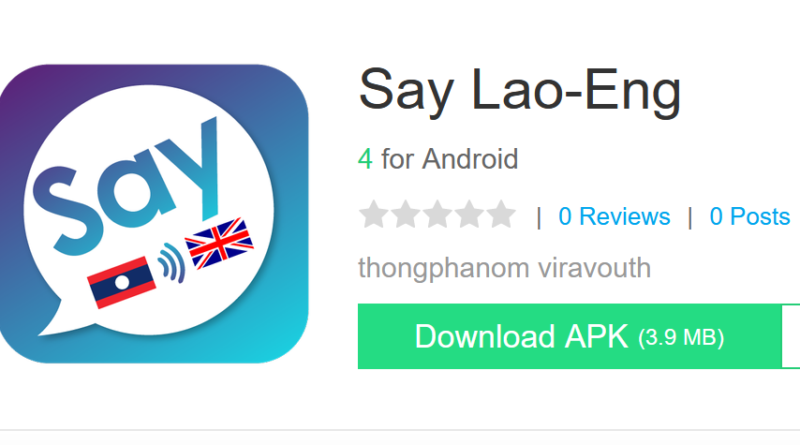Lao-English, English-Lao’s Voice Translator Now Available On Play Store
Source: Vientiane Times
“Say Lao-Eng´”, a programme for translating from Lao to English and from English to Lao on mobile phones, is the country’s first voice app that is now available on Google Play Store.
The Ministry of Science and Technology, working in cooperation with the Institute of Computer and Electronics Technology, unveiled the translator for mobile phones on November 20.
“Say Lao-Eng´” can be downloaded by scanning a QR code and is available for smartphones running on Android version 4 or higher.
Participants at a workshop held in Vientiane for disseminating information on the app were told that it was developed for translating sentences from English to Lao and from Lao to English by using voice recognition.
It will be a handy tool for students, tourists and other people, who can use the app in their daily lives, and for research and travel.
For the development of the translation system, more than 40,000 phrases have so far been translated into 33 languages, including those related to location, airport, airplane, taxi, internet, communication, resident, boat, bus, vehicles, telecommunications, finance, banking, welcome and farewell.
Other phrases that have been translated will help disabled people, those travelling with children or travelling for business. The translations are also related to healthcare, police, emergencies, love, tragedy, weather, work, study, tourism, hobbies, communication difficulties, conversations, culture, shopping, grocery and eating.

The use of the voice translation app on mobile phones is part of the Lao PDR’s modern, convenient and fast response in the scientific and technological sphere that is aimed at keeping the people up-to-date.
At the same time, it can create a database of sentences that can be easily stored for a sustainable IT development. There can also be a “sentence centre” with more and more articles.
The workshop also included a presentation on the “Digital Knowledge Base Project to Promote Productivity”, which was conducted to summarise and select knowledge that is important and useful in daily life.
It covered the four major areas of agricultural technology, educational science, basic science and healthcare, and the knowledge included video and electronic documents published on websites and a digital database for remote areas without internet.

